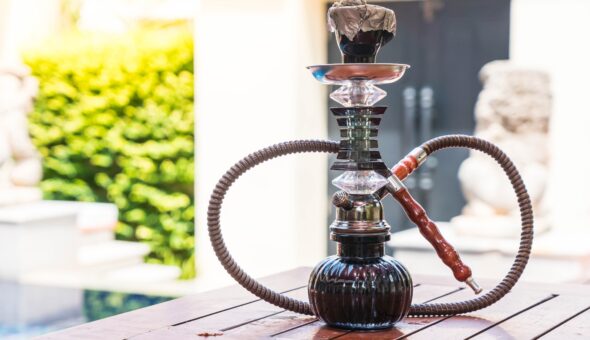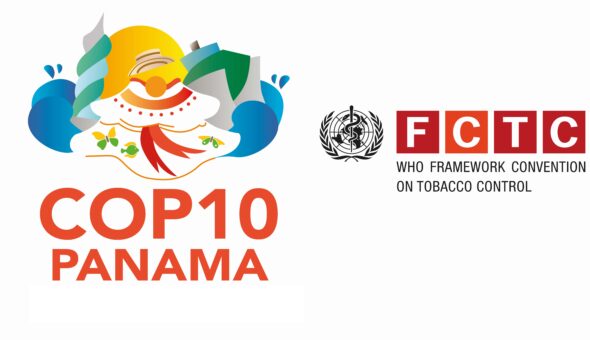Last year a team from TobaccoTactics travelled to South Africa to take part in the African Investigative Journalism Conference. Here, researcher and writer Tom Gatehouse reflects on the discussion.
“When you think about what you’re fighting for, and you know what you stand to gain, some risks are worth it,” says Njeri Mwangi, a Kenyan journalist with BBC Africa Eye. “Because if you win, then you win. If you don’t, then you’ve weakened the wall a little bit more. Eventually those who come after you, when they hit that wall they will break it.”
I had squeezed into a packed auditorium for the keynote lecture at the African Investigative Journalism Conference 2022, with three others from the TobaccoTactics team. This was a three-day event, with dozens of speakers from all over Africa and beyond. We were hoping to showcase some of the work TobaccoTactics and the Tobacco Control Research Group has done on Africa, particularly on British American Tobacco, as well as kindling some interest in the grants offered by tobacco industry watchdog STOP. But we were also there to listen.
In the keynote, Mwangi and her producer Peter Murimi talked about two of their films: “Forced to Beg” and “The Baby Stealers”. The former exposed human traffickers who smuggle disabled children from Tanzania into Kenya, where they are forced to beg on the streets. The latter investigated a thriving black market in Kenya for babies, many abducted from poor or homeless women in Nairobi. Both reports had significant impact. They forced the authorities to act, arrests were made and the investigations by the Africa Eye team formed part of the evidence.
This theme of risk recurred throughout the conference, not least in one remarkable session on undercover journalism. The speakers were Everson Luhanga, a South African journalist who investigates wildcat miners – known locally as “zamazamas” – in Gauteng, the province home to Johannesburg and Pretoria; Anas Aremeyaw Anas, an award-winning Ghanaian undercover journalist who has done extensive work exposing corruption and human rights abuses in Ghana and beyond; and a young Ugandan woman wearing a face covering, known simply as “Anonymous”, who went undercover as a domestic worker in Dubai to expose the trafficking of women and girls from Uganda to the Middle East.
“Undercover journalism is not a tea party. It is not for the faint hearted,” said Anas, who, to maintain his anonymity, only ever appears in public with a distinctive bucket hat and face covering. He spoke of his infiltration of a Thai prison, disguised as a priest; of getting admitted to a Ghanaian psychiatric hospital in order to expose mistreatment of patients; and of “Number 12”, a famous exposé of corruption in African football in 2018, which led to the banning of dozens of referees and officials, and the resignation of the head of Ghana’s FA. Yet the report also brought some tragic consequences. Anas’ colleague Ahmed Hussein-Suale was shot dead in Accra in 2019. “When is enough enough?” Anas asked. “No story is worth your life.”
The story that seemed to underpin many of the talks at the AIJC, particularly those given by South African participants, was the long-running “state capture” affair. The term refers not just to the presence of corruption in South African politics, but to the wholesale co-optation of the political system and public institutions to benefit private interests. The most prominent of those accused are the Gupta family, Indian billionaires who moved to South Africa after the fall of apartheid. They are alleged to have used their political connections with the African National Congress (ANC) to amass ever greater sums of wealth. Their political influence allegedly extended even to selecting cabinet ministers. Both the Gupta family and ANC officials deny the allegations which were the subject of an exhaustive public inquiry.
Several international companies were allegedly implicated in the affair, including the management consultants McKinsey, now fighting criminal charges in South Africa over its dealings with the state-owned freight rail and port operator; the accounting firm KPMG; and the British PR firm Bell Pottinger, which collapsed in 2017 after its involvement came to light. Hired by the Guptas’ holding firm Oakbay Investments, Bell Pottinger ran a PR campaign which critics said inflamed racial tensions in order to divert attention from the Guptas.
State capture cost South Africa tens of billions of dollars, brought down the government and has contributed to widespread disillusionment with the ANC and even with politics per se. Yet what the speakers at the keynote lecture on the final day of the conference emphasized were its very concrete, everyday consequences. The rolling blackouts; cuts to water supply; and a surge in organised and violent crime, including murder.
Many of the challenges faced by African journalists will be recognisable to others working elsewhere. The lack of access to funding, the spread of disinformation and fake news, and the domination of media by powerful interests. In Africa, however, they may also face censorship, surveillance, harassment, and in some cases, serious personal risk. Yet the feeling I had listening to the speakers at the AIJC, both from South Africa and elsewhere, is that throughout the continent, there is a vibrant, resourceful and well-informed civil society willing to hold the powerful to account.
Perhaps, as Mwangi said on the opening morning, some risks are worth it.



